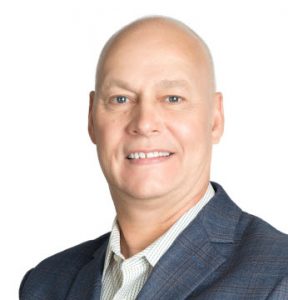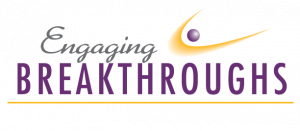How “On-Demand” Can Diminish Your Passion

More and more, we expect results to happen on demand. But what impacts can this have on your passion?
We can watch a movie instantly without going to Blockbuster to rent it. A meal or even an entire shipment of groceries can be ordered to our home within an hour. A ride to happy hour can be found in less than a minute with Uber. When we come across a work problem that we can’t solve, a quick Google search holds the answer.
Consumers clamor for convenience and speed. This is revolutionizing industries like hospitality, entertainment and transportation. As these industries respond to consumer demands, they reinforce expectations to have it all – right now, and at the touch of a button.
Economic Revolution in the Past
Ironically, the rise of “On-Demand” took many years to get here. Indeed, this isn’t the beginning of major philosophical and economic change as a result of technology. The industrial revolution of the 18th and 19th centuries marked a major shift from home-based manufacturing to mass production in large factories. Later, in the early 1900s, Henry Ford’s moving assembly line lowered the price of his vehicles, enabling the masses to own a car. More recently in the 1980s, the first personal computers hit the mass market.
Each of these revolutions and many others, large and small, had profound impacts on society. During the industrial revolution, people moved to cities from rural areas. Mass production of personal vehicles ushered in a new era of unskilled workers, rather than skilled tradesmen. Meanwhile, as families purchased cars, the modern American tourism industry was born, and new restaurants and motels popped up along highways. Later on, the invention of the personal computer changed how we do work, leading to a decline in clerical work and a new boon of opportunities for STEM careers.
Results of the Smartphone Revolution
Just as technology changed us in the past, today’s on-demand “smartphone revolution” is changing us now. It is certainly changing the way that we work. According to a 2015 report by UpWork, 54 million Americans had done freelance work in the past year. These people include independent contractors, “moonlighters” who freelance outside of a full-time job, diversified workers who have cobbled together a mix of part-time work and freelancing, temporary workers on assignment, and freelance business owners. From 2013 to 2014, 700,000 freelancers joined the revolution.
While the on-demand economy may be creating new opportunities for work, it’s not without pitfalls. For workers, freelancing can mean more financial risk. New technologies like Uber, InstaCart and online transcribing can result in very low wages for workers who don’t carefully analyze their time and use of personal resources to get the job done.
For consumers, the consequences so far are blurry, but trends are beginning to emerge:
- Blue Cross Blue Shield recently found that, “Diagnoses of major depression have risen dramatically by 33 percent since 2013.” Increased social isolation and lack of sleep are considered contributing factors.
- In 2013, the CDC reported that nearly 1 in 5 high school boys had been diagnosed with A.D.H.D, a condition resulting from abnormal chemical levels in the brain that impair a person’s impulse control and attention skills.
- A study in the American Academy of Addiction Psychiatry found that up to 7% of adults have some sort of compulsive buying issues. Compulsive buying has increased over the past 2 decades in the US and Europe.
What Happens When “On-Demand” Doesn’t Work
As we grow accustomed to getting what we want, when we want it, the impacts on our relationships and careers can be significant. What use is there in working hard to develop trusting friendships and community connections when we can interact with hundreds of people on social media in an instant? Why invest time and trouble dating when we’re one Tinder swipe away from a dopamine high? Why dig deep into our careers when we can moonlight for extra cash, or apply for a new job in seconds?
This mentality is especially dangerous when we escape the 9-to-5 funk to do what we really love. Our “On-Demand” expectations can diminish our passion when we find that there are no shortcuts, and no “easy” buttons to take us to the next step. Then, we run into beliefs that we hold about ourselves that keep us from succeeding. We find that quick self-help audiobooks aren’t enough to tackle the barriers. We know we need support, but hesitate to build new relationships with clients and mentors. Quite honestly, we’ve forgotten how to engage with others in a meaningful way.
Perhaps worst of all, we expect everything to become better instantaneously when we walk away from the corporate world. After all, we made the decision to pursue something more meaningful, didn’t we? Shouldn’t our Meaningful Life Uber Ride show up without a hiccup? We already pushed the corporate, “I quit!” button!
This is an important time to remember that flourishing in your passion takes time. It may take months to thrive while doing what you really love. In fact, it may take years. Or decades.
Don’t let the “On-Demand” modern world tell you that you’re on the wrong path just because the results aren’t instant. While our environment may offer modern conveniences, the people who created those resources didn’t do so overnight. It takes time and effort to build a fulfilling life. Don’t let “On-Demand” diminish your passion. Don’t give up on it just because there isn’t an easy button to make it happen.
Complimentary Breakthrough Consultation
In-person or online breakthrough coaching can help you to follow your passion and grow as an authentic, confident, authoritative leader in doing what you really love. To learn more, contact me for a complimentary online Engaging Breakthrough consultation.
In this 30-60 minute online breakthrough coaching session, I’ll help you get clear on where you want to be. I’ll give you my best professional recommendations to help you take your first steps toward your success breakthrough.
Click here to book your session now.
 |
Written by Craig Tennant Founder, Engaging Breakthroughs Transformation Architect and Breakthrough Coach At Engaging Breakthroughs, Craig Tennant delivers |
